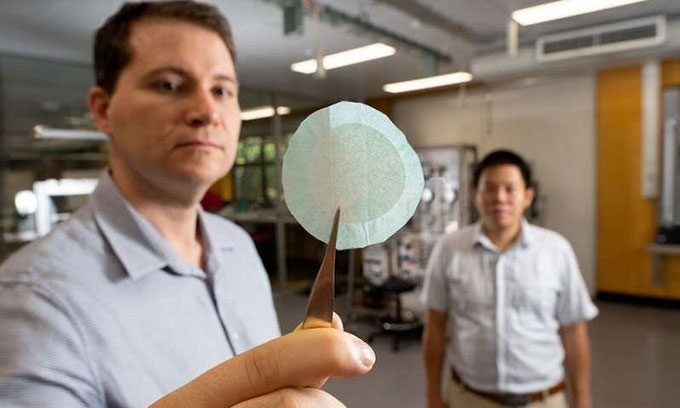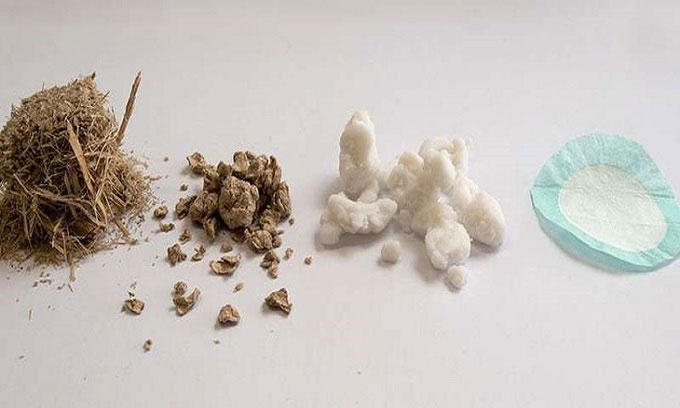Masking material from bagasse prevents nCoV
The researchers developed a new material that not only filters particles smaller than 100 nanometers but also breathes better than medical masks.

Dr. Rainey with new masking material. (Photo: Phys.org).
Dr. Thomas Rainey, chemical process engineer at Queensland University of Technology, Australia, and his colleagues are promoting research on a new material that helps remove nanoparticles they originally developed for anti-pollution masks. biodegradable.
"We have developed and tested highly breathable nanofibre materials that can remove particles smaller than 100 nanometers, the size of a virus," said Dr Rainey. "I have seen people wearing masks that have not been tested for antiviral activity. We have tested this material thoroughly and found it to be more effective than commercially available masks, in terms of its ability to filter particles. microscopic like virus ".

New masking material made from bagasse. (Photo: Phys.org) .
The researchers also tested the breathability of the new material. "The breathability reflects the effort the wearer has to make to breathe through the mask. The more breathable the mask is, the more comfortable and less tired the wearer is. This is an important factor to consider for the right person. wearing masks for a long time or suffering from respiratory illness. Our testing shows that the new material is easier to breathe than a medical mask, " said Dr. Rainey.
According to the team, the new material could be used as a filter in a mask. It is quite cheap and suitable for one-time use. According to Dr. Rainey, the cellulose nanofibre ingredients made from discarded plant materials such as bagasse and other agricultural waste should be biodegradable. The production of this yarn requires relatively simple equipment, so it can be quickly produced in large quantities. Currently, the team is looking for industry partners to produce materials.
- Russian special forces will wear bulletproof hats made from recycled materials
- The US is working on new plastic that is recyclable many times
- Manufacturing diesel oil from bagasse
- Can you believe it? 60% of the island's total electricity production is made from bagasse
- The drug discovery caused nCoV to multiply 1,000 times slower
- Evidence shows that the nCoV virus is not affected by temperature
- Developed low dose vaccine to prevent nCoV
- How does the immune system fight nCoV?
- The Ministry's Ministry of Health's free hotline for prevention and control of nCoV
- Elasticity of elasticity prevents injury
- The needle-roller vaccine creates antibodies that neutralize the nCoV
- Ho Chi Minh City discovered 2 Chinese people infected with corona virus
- Why is the nCoV virus less likely to affect children?
- Combining HIV and flu drugs to combat corona virus
 Is the magnetic North Pole shift dangerous to humanity?
Is the magnetic North Pole shift dangerous to humanity? Washington legalizes the recycling of human bodies into fertilizer
Washington legalizes the recycling of human bodies into fertilizer Lightning stone - the mysterious guest
Lightning stone - the mysterious guest Stunned by the mysterious sunset, strange appearance
Stunned by the mysterious sunset, strange appearance